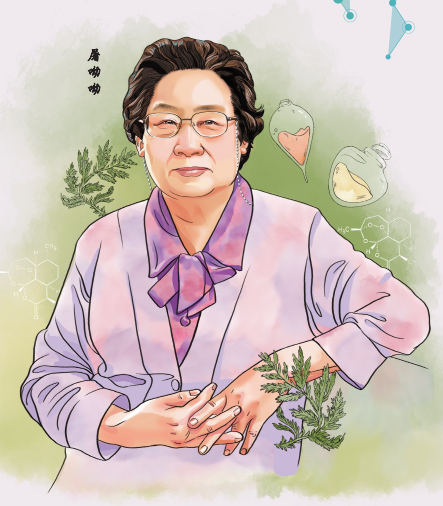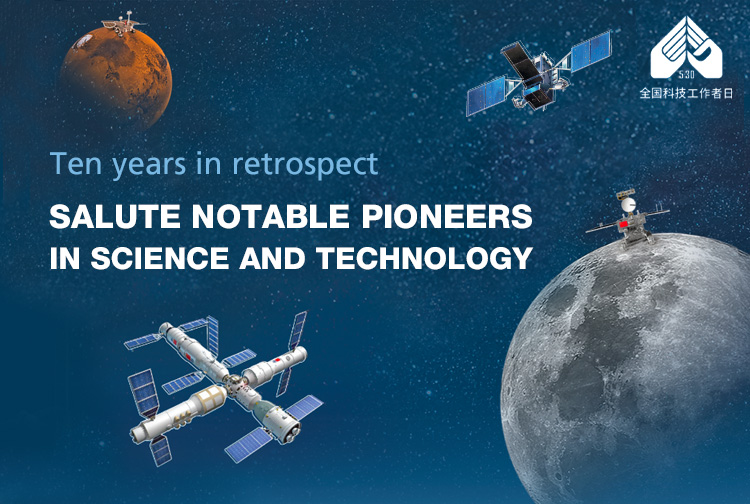Tu Youyou, 92

Tu Youyou, 92 [Illustration by Yang Liu and Li Xiaotian]
A Chinese pharmaceutical chemist whose discovery of the malaria drug artemisinin has saved millions of lives across the globe. She received the 2015 Nobel Prize in physiology or medicine, becoming the first Chinese to win this award.
She is also the recipient of the 2016 State Preeminent Science and Technology Award, China's highest honor for a scientist, and the Medal of the Republic, China's highest state honor.
This year marks the 50th anniversary of the discovery of artemisinin, the active compound that serves as the backbone for the most common and effective antimalarial treatment today.
According to the World Health Organization, about 240 million people in sub-Saharan Africa have benefited from artemisinin-based combination therapies.
By the end of 2021, China had trained tens of thousands of antimalaria technicians for developing countries and built malaria prevention and control centers for 30 countries.
During the 1940s, China was ravaged by malaria, with nearly 30 million cases each year. In June 2021, the WHO announced China had eliminated this disease within its borders.
Tu Youyou, a 2015 Nobel Prize laureate for her discovery of malaria drug artemisinin, was thrilled to hear the WHO's announcement. But a sense of urgency and responsibility quickly followed, prompting Tu to ask her colleagues how many countries had not eradicated malaria and how Chinese researchers could help.
Last month, during a meeting with officials from the National Administration of Traditional Chinese Medicine, Tu said the number of cases and mortality rates of malaria have rebounded in some parts of the world.
In 2020, there were an estimated 241 million cases of malaria worldwide, claiming around 627,000 lives, according to the WHO. The African region carries a disproportionately high share of the global malaria burden. It was home to 95 percent of malaria cases and 96 percent of malaria deaths in 2020.
The mosquito-borne infectious disease remains a serious public health challenge, and it is important for the international community to enhance collaboration toward achieving a malaria-free world, she added. At the age of 92, Tu may not be able to work as hard as she did decades ago, but she reads monthly briefs on her team's research and often offers her advice on key projects.
Understanding how artemisinin acts on the malaria parasite, how to overcome drug resistance of artemisinin-based combination therapies and whether it can be used to treat other diseases are some of the focal points of her team's research. As Tu often said, artemisinin is a gift given by China to the world. Today, artemisinin stands as the embodiment of the innovative use of traditional Chinese medicine for the benefit of humanity.






